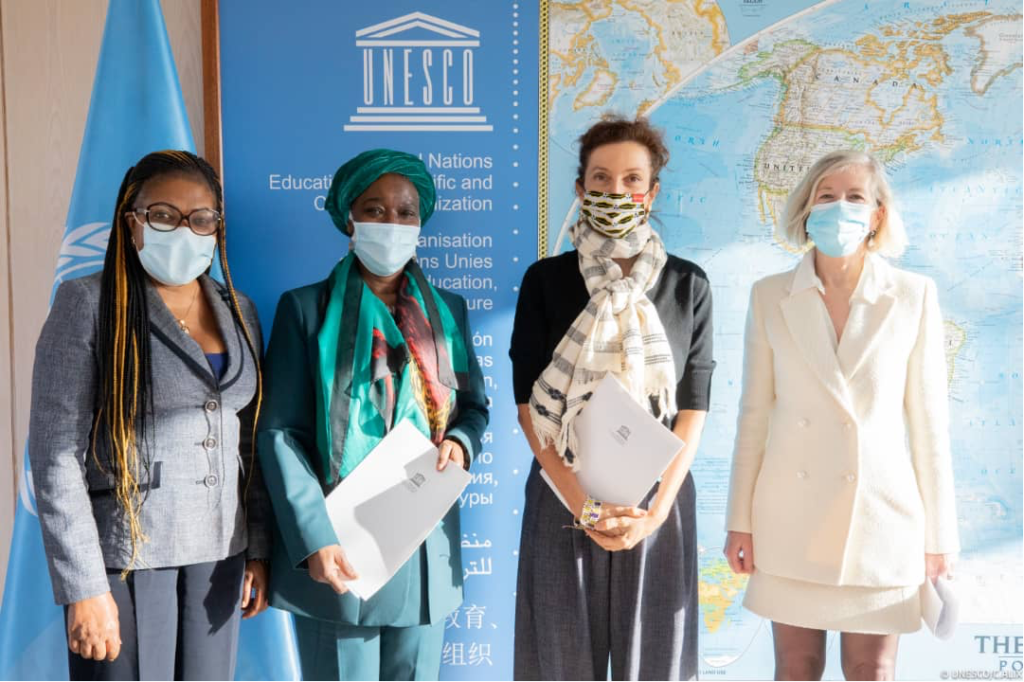The Institute for Educational Planning and Administration at the University of Cape Coast has become UNESCO category II institute for West Africa.
A press release signed by the communications directorate of the IEPA indicates Ghana's Ambassador Extraordinary and Plenipotentiary to France and Portugal and Permanent Representative of Ghana to UNESCO and Audrey Azoulay, Director-General of UNESCO, signed the agreement on behalf of the Ghana government and UNESCO to formally complete the process to establish the institute.
The agreement spells out the commitment of both parties and more specifically, addresses the mandate, responsibilities, and obligations of IEPA.
Instructively, the IEPA as a UNESCO Category II Centre is expected to build the capacity of the workforce in the education sector in the West African sub-region in the areas of Educational Planning, Leadership and Administration as well as mobilise international and regional experts to provide technical assistance and policy advice to support sector-wide planning and policy development.

Under the agreement, the operations of IEPA would be driven by four key strategic thrusts. First, to build and strengthen capacity of educational planners, leaders and administrators in the West African sub-region.
Second, to support educational ministries within the sub-region to undertake sector-wide planning, policy development and implementation.
Third, to promote cutting-edge research, innovation and consultancy in education service delivery.
And fourth, to create a platform for, and mobilize educational experts in the sub-region to interrogate educational issues and provide policy advice to Ministries of Education of Member States.
Instrumentally, the new IEPA UNESCO Category II Centre of Excellence for West Africa’s operation will result in member states harnessing research and innovation to boost development and build related capacities, preparing policy briefs emanating from research in topical issues of educational equity and efficiency, and networking for collaborative work on the priority areas of UNESCO.
Ghana recently indicated its commitment to implementing the United Nations Sustainable Development Goals (SDGs) as well as the African Union’s Agenda 2063.
The elevation of IEPA to a UNESCO Category II status is part of the commitment of the West African governments to meet the above international agenda for education especially in meeting the SDG 4 which seeks to 'ensure inclusive and equitable quality education and promote lifelong learning opportunities for all.'
It would be recalled that the 40th Session of the General Conference of UNESCO on 15th November 2019 approved the elevation of IEPA to a UNESCO Category II Centre of Excellence for West Africa.
Ghana’s delegation to the General Conference was led by the Minister of Education, Dr. Mathew Opoku Prempeh. The General Conference further authorized the Director-General of UNESCO to sign the corresponding agreement with the Government of Ghana for operations.
This signing completes the process and sets the tone for a new phase for IEPA to deliver on its new mandate.
Latest Stories
-
Paris 2024: Opening ceremony showcases grandiose celebration of French culture and diversity
3 hours -
How decline of Indian vultures led to 500,000 human deaths
4 hours -
Paris 2024: Ghana rocks ‘fabulous fugu’ at olympics opening ceremony
4 hours -
Trust Hospital faces financial strain with rising debt levels – Auditor-General’s report
4 hours -
Electrochem lease: Allocate portions of land to Songor people – Resident demand
5 hours -
82 widows receive financial aid from Chayil Foundation
5 hours -
The silent struggles: Female journalists grapple with Ghana’s high cost of living
5 hours -
BoG yet to make any payment to Service Ghana Auto Group
5 hours -
‘Crushed Young’: The Multimedia Group, JL Properties surprise accident victim’s family with fully-furnished apartment
6 hours -
Asante Kotoko needs structure that would outlive any administration – Opoku Nti
6 hours -
JoyNews exposé on Customs officials demanding bribes airs on July 29
7 hours -
JoyNews Impact Maker Awardee ships first consignment of honey from Kwahu Afram Plains
8 hours -
Joint committee under fire over report on salt mining lease granted Electrochem
8 hours -
Life Lounge with Edem Knight-Tay: Don’t be beaten the third time
8 hours -
Pro-NPP group launched to help ‘Break the 8’
8 hours

